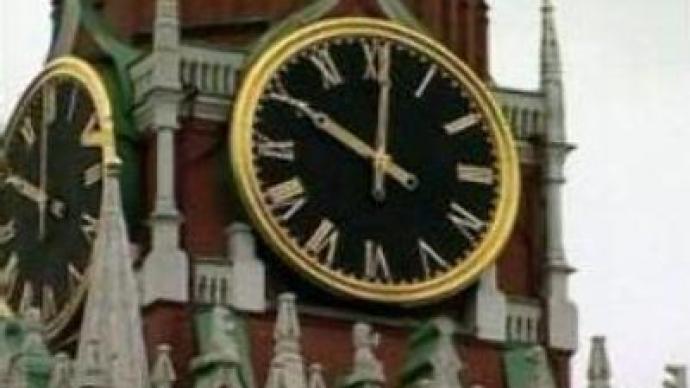Russia's past, present and future in its leader's words

In his eight Addresses while in office the Russian President has touched upon the foundations of a new Russia, the situation in the country, its place in the world, and outlined a plan for the future.
Vladimir Putin made his eighth and final State of the Nation address last week. It was his benefit performance but not his farewell. For eight years President Putin has shown Russia the way ahead. However, at the beginning of 2000 things were different. “Russia is entering a new time. Today our task is to have order within the government authorities. It is not our final goal, but only a fist step of the state's modernisation,” he remarked.Some say this address marked the beginning of the so-called war against the oligarchs and state corruption. Ten years after the collapse of the Soviet Union, the country had to be saved from further disintegration – the war in Chechnya was going on – regions and republics were striving for more independence.Putin began to reinforce the reins of power. He indicated that “the way the work is currently organised hampers and often simply halts reforms. This form of existence of the state authorities constitutes a threat for society and for the state itself.” Within two years, there was dissention, not everyone thought the government was living up to its promises. “We need to have order here. Government officials prepare the laws themselves, criticize them themselves, and later sabotage them,” Kemerovo Governor, Aman Tuleyev, said then. However, President Putin's focus was changed – the problem of the weakness of the administration gave way to that of Chechnya. According to him, “it was clear that the bandits and what remained of them would attempt to intimidate the people of Chechnya. ”We see today that the terrorist acts committed by these bandits are more and more often targeted at the civilian population, ordinary people. But we will see our work through to the end and the people of Chechnya will live a normal life worthy of a human being." Akhmat Kadyrov, the head of Chechen government paid close attantion. Within a year he had been elected President, and been assassinated. By 2004, President Putin was putting social issues – education, medical care and housing – under the microscope. The word “state” was used half as often as the word “economy”, which spoke for itself many believe.Two years ago the petrodollars began to roll in, This gave Vladimir Putin the chance to begin spending, and to think about the big picture. “The creation of an effective legal and political system is an essential condition for developing democracy in our country. But developing democratic procedures should not come at the cost of law-and-order, the stability that we worked so hard to achieve, or the continued pursuit of our chosen economic course,” he underscored. By 2006 Russia and President Putin felt comfortable enough to begin flexing their muscles again.“We see, after all, what is going on in the world. The wolf knows who to eat, as the saying goes. It knows who to eat and is not about to listen to anyone, it seems,” the Russian leader hinted. Despite criticism from G8 countries, and a series of spats with neighbours, President Putin displayed a new assertiveness that galvanised public opinion behind him and his followers. Aleksey Mitrofanov, State Duma deputy stressed that “we do not want any confrontation with the West, but we want to be an independent state, politically and economically.” And so it was the first opportunity for President Putin to shower the country with money, embarking on billions of dollars worth of projects. Even so, convincing the most ardent of supporters is still difficult.“It looks like a programme for the government. My point is I do not think this government can perform and can actually put it in practice,” Aleksandr Lebedev, State Duma MP indicated.No longer are Putin's words protective. They are now provocative, urging Russians to revive values not seen in the country for decades. “The spiritual unity of the people and the moral values uniting us is as important as economic and political stability,” the Russian President stressed in his Address to the Nation.President Putin's final address was very much anticipated. Even though it is his last Vladimir Putin isn't ready to judge his achievements or write his own political epitaph.
You can share this story on social media:












